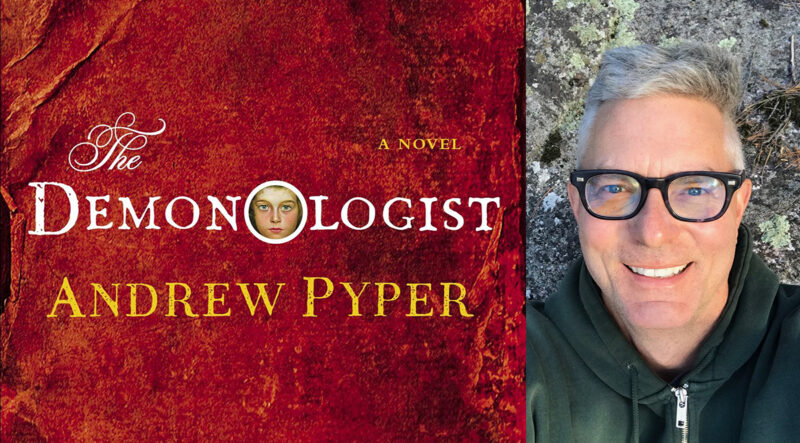After publishing The Demonologist in 2013, victims of malevolent spirits still reach out to Pyper looking for help, but he’s at a loss as to what to do
Write a novel that shares the same name as an Ed and Lorraine Warren book, and you’ll have people asking you for help to battle demonic spirits.
Since Canadian author Andrew Pyper published The Demonologist through Simon and Schuster in 2013, he’s had people contact him seeking help. But he admitted he doesn’t know where to guide people to get the proper assistance, he told The Superstitious Times in a November phone conversation.
“Even if I had names, I didn’t feel comfortable in recommending people who were just a name (because) they might have been dishonorable. I didn’t want to guide people to a place that wouldn’t be helpful,” he said.
His response, as he does want to help but not in a hands-on capacity, is to apologize, and admit he is a novelist who knows some things about the field “as a matter of amateur interest”, but cannot provide practical assistance.
There’s empathy in his voice when he recalls the times people have reached out to him looking for help. He said he’s both fascinated and frightened by the experiences they have shared. He’s even discussed more unusual reader interactions with colleagues, including Paul Tremblay, who tackled demonic possession in his 2015 novel, A Head Full of Ghosts.
In the end, “As concerned as they are, I’m very wary to enter a zone that in which something might attach itself to me,” Pyper admitted.
The Demonologist focuses on the experiences of literature professor David Ullman and his journey to save his daughter from an unnamed demon while on vacation in Venice, Italy.
Though it’s not off-topic compared to Gerald Brittle’s book on the Warrens, The Demonologist: The Extraordinary Career of Ed and Lorraine Warren, it’s not something that could help the haunted ward off evil entities.
Paranormal researcher Michelle Desrochers keeps tabs on the people she has helped and admitted that at one point she was handling 10 to 15 new people per week with attachments or malevolent hauntings.
“Now with the internet, there are a lot of people getting falsely certified in demonology and even exorcists,” she wrote in a November direct message. “There are good people out there who know what they’re doing, (but) it’s the ones that don’t that worry me.”
Desrochers has been in the field for over two decades and has worked to clean many a malevolent haunting. However, the democratization of paranormal investigation has obscured just where victims can get help with aggressive hauntings.
“Right now, because of the numerous TV shows out there, there are a lot of people attempting this sort of thing and have no experience at all … I’ve cleaned up a lot of messes in the process,” she wrote. “There are many people out there whose primary objective is to get on TV.
“I’ve never chased it, and I’ve always been humbled to have it. It’s always allowed people to find me.”
She lauded the work of Bishop James Long, who works as an advisor in the U.S. on demonology. The key to helping victims in a dark place is to show empathy, and simply believe.
“Sometimes, just knowing someone believes them, that someone is there looking out for them is all it takes to put the fighting spirit back in there for the family itself,” she wrote.
The experience of hearing out victims of malevolent hauntings has piqued Pyper’s curiosity, having for several years the desire to write a non-fiction study on one or more malevolent hauntings.
“My emphasis would not just be on the suspenseful, scary, freaky aspects of whatever this story might be, but the profile of the people involved in it, because I find that often overlooked in the non-fiction accounts of the supernatural,” he said. “I find the idea of understanding who these people are — who they were when they moved into a house that changed their lives — really fascinating.”

